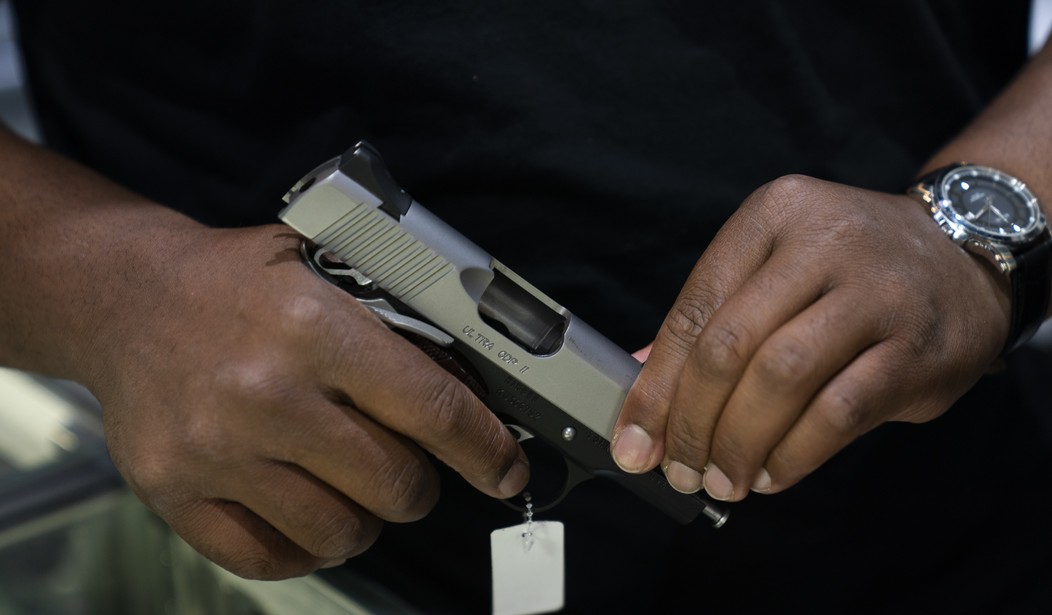I generally don’t put too much stock into the findings of any particular gun control poll, mostly because I think they wildly overestimate the popularity of gun control proposals. Surveys routinely show that things like “universal background checks” are incredibly popular with voters, for instance, but when these measures are put to a vote of the people they’re far more divisive. In 2016, for instance, voter referendums on universal background checks were held in Nevada and Maine, and neither one managed to get anywhere close to the 80% approval that the measure typically receives in polling. In fact, Maine’s referendum was defeated outright, while Nevada’s was only approved by 50.4% of the electorate.
So I’m skeptical that a new poll surveying South Dakotans’s attitudes towards gun control is all that accurate, particularly given some of the decidedly odd findings.
The poll of 500 registered voters showed that 60% of respondents support establishing a two-week waiting period to buy an AR-15 – a semi-automatic rifle originally designed for military use – and 54% support a minimum age of 21 for AR-15 purchases. There is less agreement on gun sales in general, with 41% saying South Dakota’s laws should be stricter and 47% saying that they should stay the same. Only 11% responded that laws governing gun sales in the state should make firearms easier to acquire.
Now I’ve never claimed to be the brightest bulb in the chandelier, but can someone explain to me how almost 60% of survey respondents can say that the state’s gun laws should either be kept the same or more relaxed, but 60% also support imposing new restrictions on the sale of firearms? Seems to me those numbers are completely contradictory.
So what accounts for this confusing result? My guess is that it’s because most voters don’t think too deeply about these issues, particularly if they don’t own a firearm or aren’t involved in either Second Amendment or gun control activism. And based on this particular survey’s findings, I’d say that the lions share of those voters lean left.
In the News Watch poll, women (61%) and people over 65 (61%) were significantly more likely to support banning the sale of AR-15s to people under 21. Federal law places the minimum age to purchase rifles or shotguns at 18, but state or local ordinances can raise that minimum age.
Six of the nine deadliest mass shootings in the United States since 2018 were carried out by men 21 years old or younger, according to the Violence Project, which maintains a national database of mass shootings. Many of those shootings involved semi-automatic rifles.
Of the respondents polled in South Dakota, 76% percent of Democratic voters strongly support raising the age limit to 21, while 41% percent of Republicans strongly oppose such a change. Of Independents, 53% strongly support raising the age limit.
Of course, it may also be that this is just a wonky poll overall. The survey didn’t just ask about gun control; it also polled respondents on their support for legalizing recreational marijuana, and found 54% opposed to the idea even though 54% of voters cast a ballot in favor of legalization back in 2020 (the ballot initiative was ultimately thrown out by the state Supreme Court). It’s not unreasonable to think that there’s been a change in opinion to some degree in the past couple of years, but one backer of legalization says he found some odd results when he started digging down into the data.
“When I look a little deeper, I found things that do not make sense to me,” said Matthew Schweich, campaign director for South Dakotans for Better Marijuana Laws. “Some of the numbers don’t really make sense and conflict strongly with previous data that we’ve seen.”
In particular, Schweich pointed out that certain elements within the News Watch/USD poll do not jibe with past indicators of support for legalization in South Dakota. For example, the News Watch/USD poll showed 38.6% of poll respondents in the Sioux Falls metro area supported legalization, and 58.0% were opposed.
However, that population showed the highest level of support in the 2020 statewide vote on Constitutional Amendment A. Of the seven state Senate districts that comprise the Sioux Falls area, District 15 had the highest percentage of voters supporting Amendment A, with 72.7% in favor, and no district reporting lower than 57% support for legalization.
I wouldn’t be shocked if support for legalizing marijuana has dipped in South Dakota, but I wouldn’t expect to see a decline of 20 points or more in the part of the state that was most amendable to the idea just two years ago.
We’ll see just how accurate this survey was (at least when it comes to legalization) in just a couple of months when voters will once again be casting ballots on recreational marijuana, but for now I’d take these results with more than just a grain of salt. Given the weird findings, this survey’s probably deserving of the entire shaker.








Join the conversation as a VIP Member